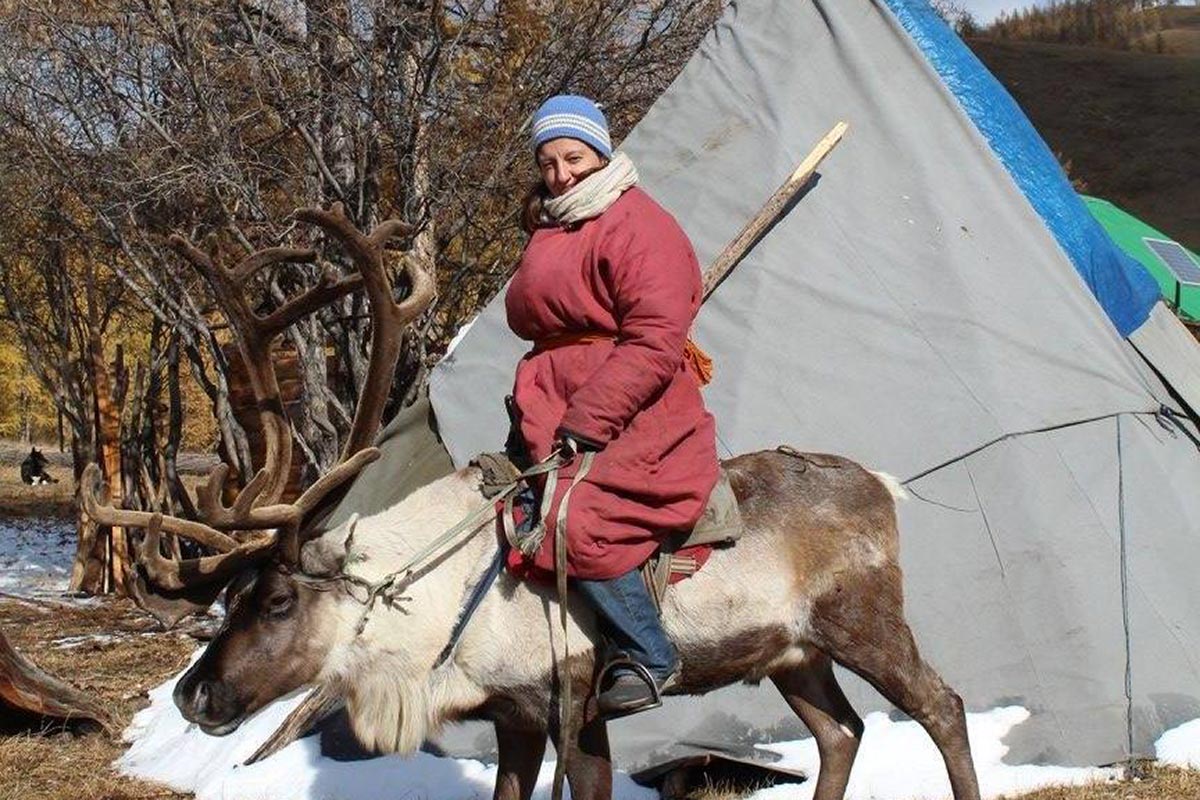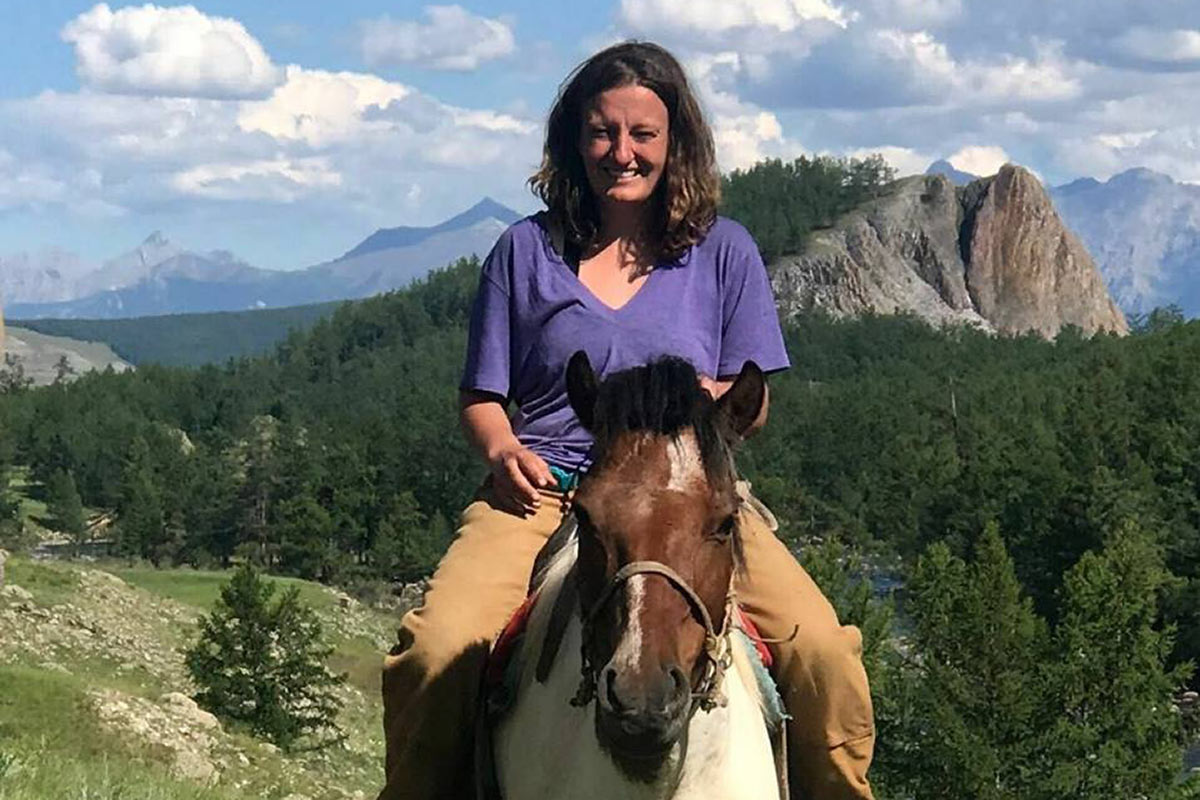
Visiting Endeavour fellow, American archaeologist Dr Julia Clark, has spent the past decade in the vast frozen plains of Mongolia. And there’s no place she’d rather be.
The founder and director of NOMAD Science and the Cultural Heritage Coordinator of the American Center for Mongolian Studies is a Flinders University on a four-month Endeavour fellowship on archaeology and tourism.
The fellowship aims to promote international collaboration between archaeological and related disciplines in Mongolia and Australia while also preserving the cultural heritage of Mongolia where Julia has been working since 2007.
Dr Clark is making key connections between the relatively untapped archaeology of Mongolia and potential tourism and study tours.
“I chose Flinders University because of the availability of the necessary physical and intellectual facilities available to ensure the successful completion of the project, providing me with a stimulating research environment and mentoring from internationally renowned researchers,” she says.
“Via the fellowship, I am seeking to expand my field-based outdoor education experiential expedition program with the three goals of promoting cultural heritage preservation, educating students in archaeological field methods, and conducting state-of-the-art archaeological research.”

NOMAD Science is an archaeological field school that trains young students from around the world – and including an increasing number of Australian students – in the skills needed to undertake archaeological field research while also providing “an unforgettable and unique cultural experience”.
Focused on a remote region of northern Mongolia, Dr Clark says this research has always had a distinctly inter-disciplinary and inclusive focus, with project archaeologists collaborating with ethnographers, botanists, climatologists, ecologists, geologists, wilderness emergency medicine professionals, local herders, national park administrators and others.
“The landscape of Mongolia and Australia couldn’t be more different but there are parallels in isolation and distance that mean that they have much to teach each other in terms of managing cultural heritage and tourism,” she says.
“I am keen to raise the profile of this important international exchange and provide research opportunities for Australian university students Mongolia, along with tailoring field expedition experience for undergraduate students.”
Read Dr Clark’s latest article published in The Conversation here (12 March 2018).
Other visiting Endeavour executive fellows coming to Flinders University this year are Dr Mike Charles (USA) and Dr Piya-on Numpaisal (Thailand).
The three Endeavour Postgraduate Scholarship (Masters) students are Ms Nimesha Didulani Dantanarayana (Sri Lanka), Ms Simonee Monott (Jamaica) and Mr Alessanddro Sereni (Italy). Mr Nelsensius Klau Fauk (Indonesia) and Ms Thi Huong Nguyen (Vietnam) will be at Flinders as Endeavour Postgraduate Scholarship (PhD) holders.
Flinders will also be welcoming as Endeavour Research Fellows Assistant Professor Maysaa AL Mohammedawi (Iraq), Mr Thang Bach (Vietnam), Ms Amanda Fleury (Canada) and Dr David Murphy (Canada).
As well, the 2018 Australia Awards – Endeavour Scholarships and Fellowships will see six Flinders University students undertake professional development, study or research overseas while 12 international students and researchers will come to Flinders under the program.
Ms Lisa Alcock has been awarded an Endeavour Postgraduate Scholarship to study in the UK while Farid Anvari, Dr Kacie Dickinson, Christine Evans, Dr Katharina Peters and Alan Taylor will respectively conduct Endeavour Research Fellowships in the Netherlands, Canada, New Zealand and Brazil in 2018.

